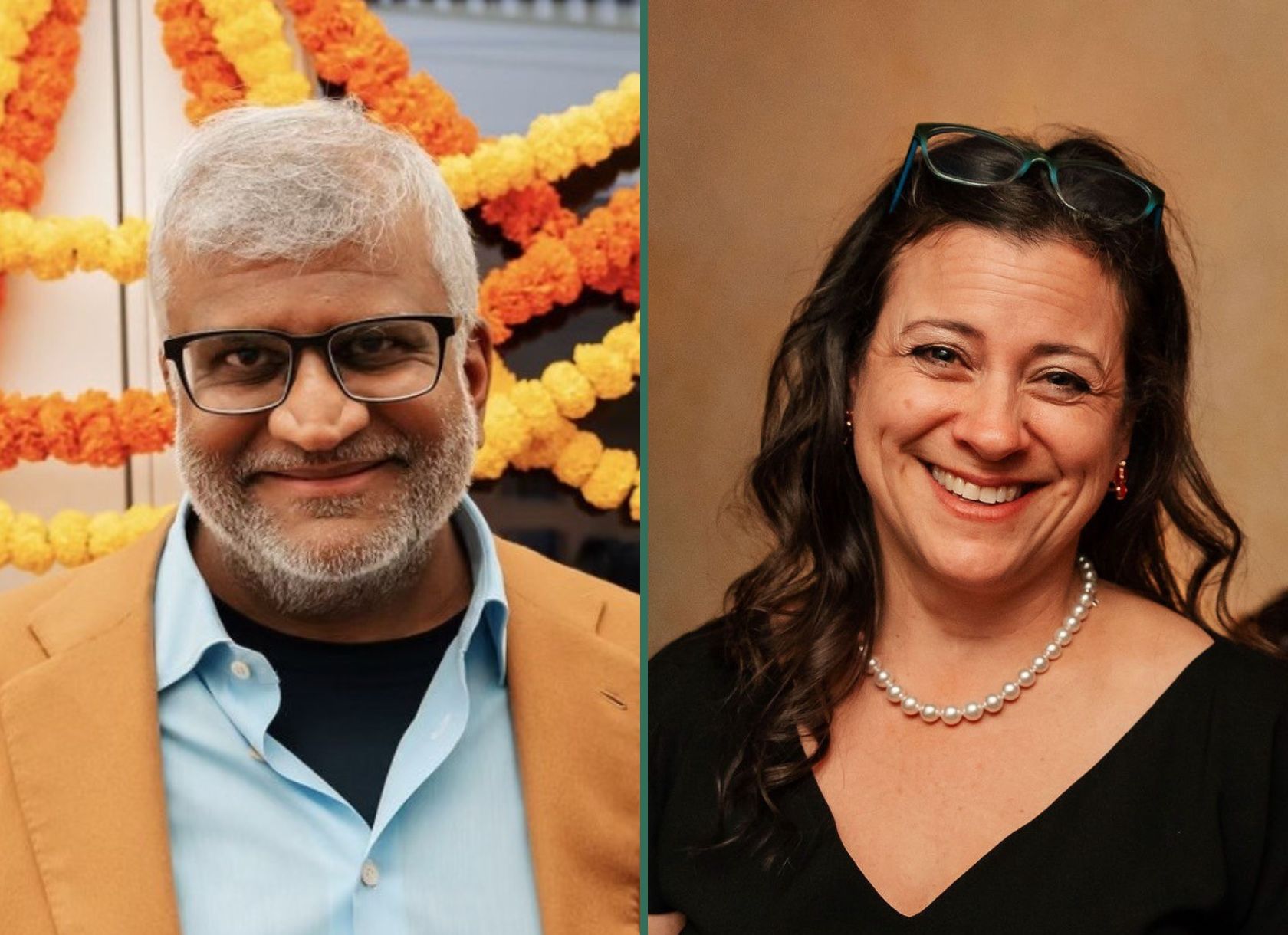
By Kendra Pintor
Scripps College is set to receive a significant boost to funding in the realm of computational science, thanks to the extraordinary generosity of Sara Zion and Tushar Shah P’26, who have chosen to support the establishment of a $2 million endowed professorship that promises to have a lasting impact on Scripps.
Speaking about the couple’s motivation behind making such a consequential gift to the College, Zion says, “Our daughter has found a second home at Scripps College. We chose to support this institution that is doing so much for her intellectual and personal growth.”
Zion and Shah’s connection to Scripps College is deeply personal, rooted in their daughter’s transformative experience attending the institution. Their gift will fund the creation of an endowed professorship in computational science, a field that both Zion and Shah believe has immense potential to encourage academic exploration and knowledge.
“Computational science allows people to explore their understanding of simple and complicated systems with depth and creativity,” explains Zion. “We would like to increase Scripps students’ exposure to this sort of problem solving.”
Scripps College has been making strides in data science and computer science, both by introducing minors in both subjects and through ongoing faculty research within the Department of Natural Sciences (formerly W.M. Keck Science Department). “There is a need, the importance of which is reflected in the department’s vision statement, to teach students the skills of mathematical modeling and computational and statistical tools and methods,” says Ulysses J. Sofia, Weinberg Family Dean of Science of the W.M. Keck Science Department. “Additionally, these tools can often be broadly transferrable to address questions outside of scientific disciplines.”
Zion and Shah also envision this initiative as a gateway for students to develop their ability to interrogate the world around them through mathematical modeling. “Our hope is that students, regardless of their educational interests or backgrounds, will learn to employ these investigatory methods in their daily and professional lives,” says Zion.
Sofia says that the College, in recognition of the need to foster the teaching of quantitative and computational methods through the natural sciences curriculum, has made several tenure-line hires that address these needs. “Until a recipient for the professorship is named, the department’s budget committee will allocate the research funds annually from this endowment among our computational faculty to support specific projects that fit the endowment’s priorities and would not otherwise be able to be funded,” he says.
Zion and Shah’s long-term vision for the impact of the endowed professorship is that the gift will enable more students to understand the world around them and their place in it. They believe that this will lead to increased productivity in students’ chosen fields and their future careers, and ultimately, to increased fulfillment throughout their lives.
“Endowed faculty gifts usually result from an alignment between institutional priorities and a donor with a vision,” says Sofia. “That is certainly the case with this fund, as this endowment shows a broad commitment to using computational methods in all of the natural sciences.”
As Scripps College prepares to embark on a new chapter of academic exploration and innovation, Zion and Shah’s transformative gift stands as a testament to the power of philanthropy in shaping the future of education. This endowed professorship will not only enrich the academic experience at Scripps College but also foster a legacy that will undoubtedly benefit generations to come.
To enrich the student experience at Scripps, please consider making a gift here.

